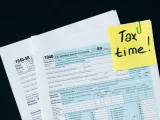
Simplified Guide to New Jersey Tax Brackets: Know Your Rates in 2023
July 31, 2023Taxes play a crucial role in the financial landscape of any state, and New Jersey is no exception. Understanding the intricacies of the tax system, including tax rates, income brackets, and deductions, is important for every taxpayer. In this simplified guide, we will explore the New Jersey tax brackets for the year 2023 and provide valuable insights into how the state income tax is calculated.
What is the New Jersey income tax rate for 2023?
Understanding the state income tax brackets
Before delving into the tax rates, it’s important to grasp the concept of state income tax brackets. Tax brackets represent different income ranges, each associated with a specific tax rate. The tax rates generally increase as the income bracket rises. New Jersey determines its tax brackets based on filing status, such as single, married filing jointly, or head of household.
How does the tax rate vary based on filing status?
The tax rate for New Jersey state income tax varies depending on your filing status. For single individuals, the tax rates for 2023 range from 1.4% to 10.75%. Married individuals filing jointly generally have wider income ranges for each tax bracket compared to single filers.
What are the tax brackets for joint filers in New Jersey?
If you are filing jointly in New Jersey, the tax brackets for 2023 range from 1.4% to 10.75%, similar to single filers. However, the income ranges for each bracket may be different. It is essential to familiarize yourself with the specific tax brackets to accurately calculate your state income tax liability.
How is New Jersey income tax calculated?
What is considered taxable income in New Jersey?
Taxable income in New Jersey includes various sources of income, such as salaries, wages, tips, commissions, and bonuses. Additionally, taxable income may also include dividends, interest, capital gains, and income from rental properties. It is important to report all taxable income on your state tax return.
What are the income tax brackets for New Jersey?
The income tax brackets for New Jersey determine the tax rate applicable to your taxable income. As mentioned earlier, the tax rates for 2023 range from 1.4% to 10.75% based on your filing status and income level.
Are there any deductions available for New Jersey state income tax?
New Jersey offers various deductions that can help reduce your state income tax liability. Some common deductions include mortgage interest, property taxes, medical expenses, and charitable contributions. It is important to consult a tax professional or refer to the New Jersey Division of Taxation for detailed information on available deductions.
What other taxes do New Jersey residents need to be aware of?
Understanding property taxes in New Jersey
In addition to state income tax, New Jersey residents are also subject to property taxes. Property tax rates in the state can vary based on the municipality and the assessed value of the property. It is essential to understand the local property tax rates and regulations when budgeting for homeownership or renting a property in New Jersey.
What is the sales tax rate in New Jersey?
New Jersey has a statewide sales tax rate of 6.625%. This rate applies to most goods and services, with certain exemptions and exceptions. It is crucial to consider the sales tax when making purchases or running a business in the state.
Are there any estate or inheritance taxes in New Jersey?
Yes, New Jersey imposes both estate and inheritance taxes. These taxes apply to the transfer of assets after the death of an individual. It is recommended to consult with an estate planning attorney or tax professional to understand the regulations and potential tax implications.
How to file your New Jersey state tax return?
What is the deadline for filing New Jersey state income tax?
The deadline for filing your New Jersey state income tax return is usually April 15th, aligning with the federal tax deadline. However, it’s important to check the specific due date each year, as it may vary depending on weekends and holidays.
What are the available tax credits in New Jersey?
New Jersey offers several tax credits that can help reduce your state tax liability. One notable credit is the Earned Income Tax Credit (EITC), which benefits lower-income individuals and families. Other credits may include child and dependent care tax credits, property tax relief credits, and business-related incentives. It is advisable to research and consult with a tax professional to maximize your tax credits.
Where can I find information about the New Jersey Division of Taxation?
The New Jersey Division of Taxation is the official government agency responsible for administering tax laws in the state. For detailed information about filing requirements, forms, publications, and tax updates, you can visit their official website or contact their helpline.
Important considerations for New Jersey taxpayers
How does New Jersey tax non-residents?
New Jersey taxes non-residents based on the income earned within the state’s jurisdiction. Non-residents are subject to a different set of tax rates and brackets. It is important to accurately report your income and determine your residency status to comply with New Jersey tax laws.
Are Social Security benefits subject to New Jersey income tax?
No, New Jersey does not tax Social Security benefits. However, it’s important to note that other sources of retirement income, such as pensions and 401(k) withdrawals, may be subject to state income tax. Understanding the taxability of different income sources is crucial for effective tax planning.
What are the personal exemption and standard deduction amounts in New Jersey?
As of 2023, New Jersey does not offer personal exemptions or a state-level standard deduction. However, it is important to consider federal tax deductions and exemptions when calculating your overall tax liability.
What is the state income tax rate for head of household filers?
Head of household filers in New Jersey are subject to the same tax rates and brackets as single filers. The tax rates range from 1.4% to 10.75%, based on the income bracket.
Note: The above information is based on the tax rates and brackets applicable to the tax year 2023 in the state of New Jersey.


